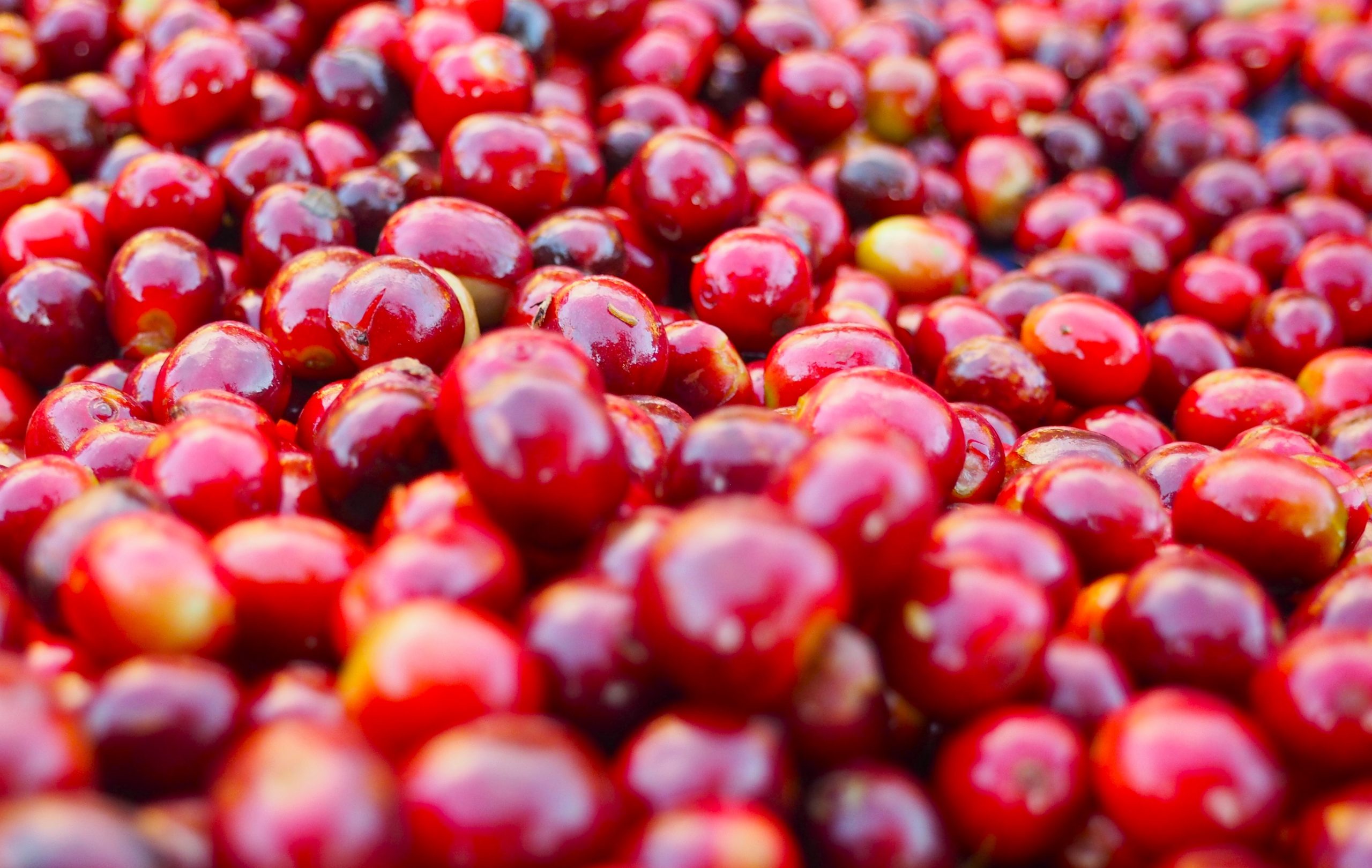Ethiopia Yirgacheffe 1 Natural Anaerobic Aricha – 31679 – GrainPro Bags – SPOT RCWHSE
Position Spot
Bags 0
Warehouses Oakland
Flavor Profile NULL
Check out our Guide to Ethiopian Coffee Grades
Out of stock
About this coffee
Grower
Smallholder farmers organized around Shewamare Getahun's processing station
Altitude
1950 – 2200 masl
Variety
Wolisho, Dega (local landraces)
Soil
Vertisol
Region
Aricha Kebele, Yirga Chefe Woreda, Gedeo Zone, Southern Nations, Nationalities, and Peoples’ Region
Process
Anaerobically fermented natural dried on raised beds
Harvest
November - January
Certification
Conventional
Coffee Background
This coffee was produced at an independent processing site in Aricha, in the heart of the Yirgacheffe district. The cup quality of this area is historic to coffee, comprised mostly of indigenous landrace arabica variations, and known for rich berry-like and floral naturals. For this lot the processors added an extra fermentation step, done with minimal oxygen, in order to enhance the acids and fruit clarity of the final cup.
Yirgacheffe
The Yirga Chefe "woreda", or district, is in the heart of southern Ethiopia’s coveted Gedeo Zone. Gedeo is a narrow section of highland plateau dense with savvy farmers and fiercely competitive processors, and has been known commercially as “Yirgacheffe” for many years after this district, considered one of Ethiopia's best and its first area to fully wash its coffee. As a coffee terroir, Yirgacheffe has for decades been considered a benchmark for beauty and complexity in arabica coffee—known for being beguilingly ornate and jasmine-like when fully washed, and seductively punchy and sweet when sundried--and hardly requires an introduction.
Aricha itself is deeply tied to Yirgacheffe’s legendary celebrity. Originally the area was known as “Misty Valley” after the humidity that settles into the area at night. “Misty Valley” was used by some of the first processing sites in Aricha to brand their coffee, and the term became synonymous with Yirgacheffe specialty coffee long before traceable coffee was available elsewhere in the country. Now, of course, there are multiple independent processing stations in the Aricha area, and this one, managed by Shewamare Getahun, is a small but special representation.
Aricha Farmers and Processing
Shewamare Getahun's processing site services coffee grown by Aricha area farmers only. The entire station occupies only a small piece of land. The station is processing both fully washed and sundried natural, and in rare cases experimental anaerobic profiles like this one. The processing station maintains over 200 drying beds and a permanent staff of 6, which during harvest months balloons to over 90.
Hundreds of individual farmers supply Getahun's Aricha site. Farmers in this area average just over 2 hectares per household and in addition to coffee cultivate avocado, soy beans, sugar cane, and enset, a fruitless relative of the banana tree whose inner pulp is scraped, packed into cakes, fermented undergound, and then toasted and consumed as a staple starch.
This anaerobic lot was created by receiving cherry at the Aricha site, inspecting and sorting it for ripeness and uniformity, and then transferring the cherry to a warehouse in the nearby Konga municipality. There the cherries were packed into barrels, sealed, and allowed to ferment for 9 full days. Anaerobic fermentation such as this deprives the fermenting environment of oxygen and thereby slows and extends the degradation process of the coffee cherry, allowing the inner seed extended contact with its own softening fruit. The result, as in this case, is a coffee with increased tanginess and clarity compared to the often softer sweetness of dried fruit common in traditional naturals.
After fermentation is complete the cherry is moved back to the Aricha station to sun dry for 15-18 days depending on the local climate. After drying, the coffee is hulled and transported to Addis Ababa for final milling.




